As the world’s population continues to urbanize at a rapid pace, the demand for sustainable, affordable, and adaptable housing solutions has become a pressing concern for city planners, developers, and policymakers alike. Traditional approaches to urban housing have often fallen short in addressing the unique challenges and constraints of modern metropolitan areas, leading to the emergence of innovative alternatives that seek to redefine the way we think about the built environment.
One such alternative that has gained increasing attention in recent years is the concept of mobile container houses – prefabricated living spaces constructed from repurposed shipping containers that offer a unique blend of portability, customization, and environmental responsibility. While these modular, self-contained dwellings have long been associated with temporary or transitional housing solutions, their potential to serve as viable, long-term residences in urban settings is now being actively explored and embraced by a growing number of forward-thinking individuals and organizations.
“The traditional approach to urban housing has been plagued by a range of challenges, from the high costs and limited availability of land to the environmental impact of traditional construction methods,” explains the lead urban planning and design expert at a prominent research institute. “Mobile container houses represent a fundamentally different way of thinking about the built environment, one that has the potential to address many of these issues while also delivering a level of flexibility, customization, and sustainability that simply can’t be matched by conventional housing options.”
At the heart of the mobile container house concept lies the inherent strengths of shipping containers – their durability, modularity, and portability – which have been leveraged by designers and engineers to create highly adaptable, self-contained living spaces that can be seamlessly integrated into the urban landscape.
“Shipping containers are an incredibly versatile and resilient building material, and we’ve recognized their immense potential to revolutionize the way we approach urban housing,” the lead urban planning and design expert explains. “By repurposing these ubiquitous steel structures and transforming them into high-quality, mobile living spaces, we’re able to deliver a level of functionality, sustainability, and customization that simply can’t be matched by traditional brick-and-mortar construction.”
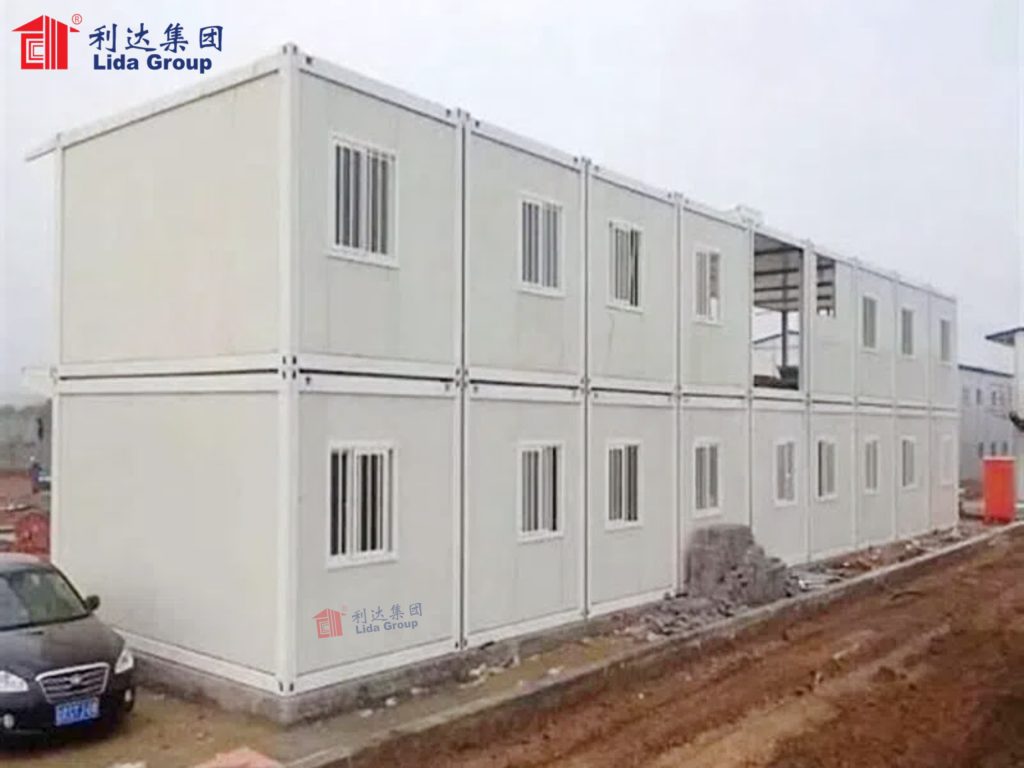
Embracing the Unique Advantages of Mobile Container Houses
One of the key advantages of mobile container houses in urban settings is their exceptional level of portability and adaptability, which allows them to be easily transported, reconfigured, and relocated to meet the evolving needs of city dwellers and urban communities.
“Mobility is a critical component of the mobile container house concept, as it enables these living spaces to be quickly and efficiently deployed in a wide range of urban environments, from vacant lots and underutilized rooftops to temporary development sites and emergency housing scenarios,” the lead urban planning and design expert explains. “By leveraging the inherent transportability of shipping containers, we’re able to create living spaces that can be seamlessly integrated into the existing urban fabric, responding to the changing demands and priorities of city residents in a way that simply isn’t possible with conventional housing solutions.”
This exceptional level of mobility and adaptability is further enhanced by the modular design of mobile container houses, which allows for a high degree of customization and reconfiguration to meet the unique needs and preferences of individual residents or specific urban contexts.
“The modular nature of mobile container houses is a key differentiator, as it enables us to create living spaces that can be tailored to the unique requirements of the end-user or the specific site conditions,” the lead urban planning and design expert explains. “Whether it’s adjusting the size, layout, or amenities of the container units to accommodate the needs of a growing family or reconfiguring an entire cluster of mobile homes to maximize the use of a limited urban lot, the flexibility and customization inherent in this housing solution is truly unparalleled.”
In addition to their exceptional mobility and adaptability, mobile container houses also offer a range of practical benefits that make them well-suited for urban living, including their compact footprint, efficient use of space, and ease of installation.
“One of the primary challenges of urban housing is the scarcity of available land and the high cost of development, which has led to the proliferation of small, cramped living spaces that often fail to meet the needs and preferences of city dwellers,” the lead urban planning and design expert explains. “Mobile container houses, on the other hand, are designed to maximize the use of every square foot, delivering high-quality, comfortable living environments within a compact, self-contained package that can be easily and efficiently deployed in even the most space-constrained urban settings.”
Furthermore, the modular, prefabricated nature of mobile container houses allows for a streamlined and efficient installation process, minimizing the disruption and environmental impact typically associated with traditional construction methods.
“The speed and ease of deployment is a critical advantage of mobile container houses in urban settings, where construction projects can often create significant noise, traffic, and other logistical challenges for local communities,” the lead urban planning and design expert explains. “By leveraging the prefabricated nature of these container-based living spaces, we’re able to dramatically reduce the construction timeline and the associated disruptions, ultimately delivering high-quality housing solutions that are seamlessly integrated into the urban fabric.”
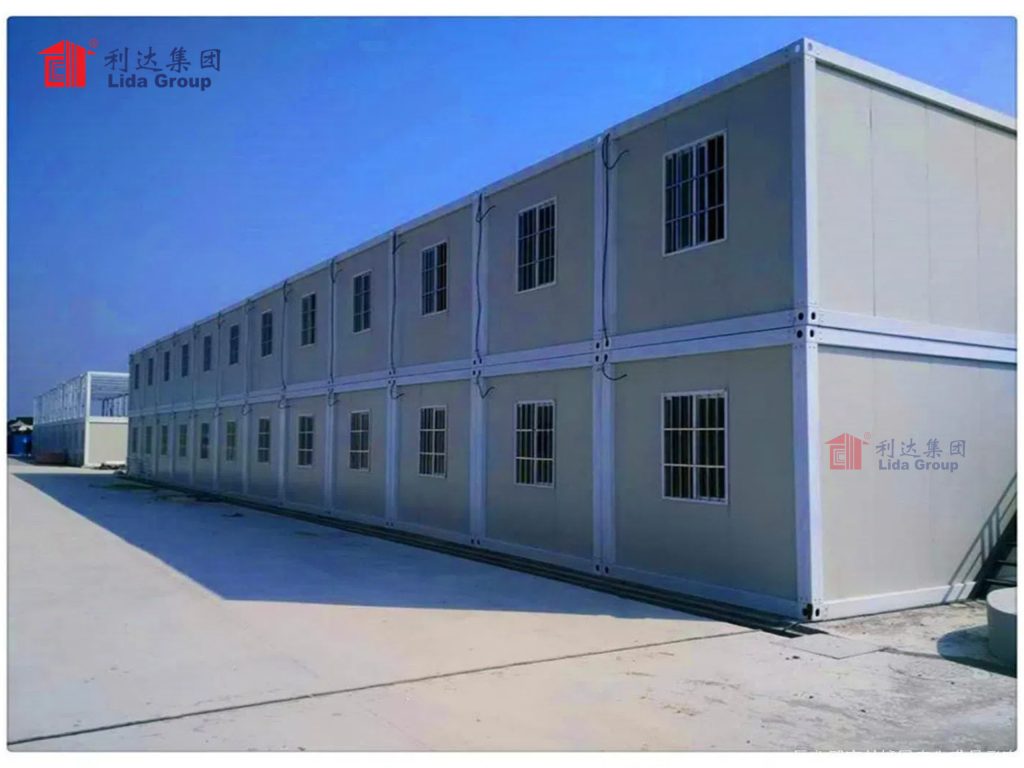
Embracing Sustainability and Environmental Responsibility
In addition to their practical advantages, mobile container houses have also emerged as a promising solution for addressing the pressing sustainability and environmental challenges facing many urban areas around the world.
“Sustainability and environmental responsibility are core principles that are deeply embedded in the mobile container house concept, reflecting a growing recognition that the built environment has a profound impact on the long-term health and well-being of our cities and communities,” the lead sustainability and environmental expert explains.
One of the key ways in which mobile container houses contribute to sustainable urban development is through their use of repurposed shipping containers as the primary building material. By leveraging these ubiquitous steel structures, which would otherwise be destined for landfills or scrapyards, mobile container house designs reduce the demand for new construction materials and minimize the environmental footprint associated with traditional building practices.
“The circular economy principles underlying the mobile container house concept are truly transformative, as they enable us to transform what would otherwise be considered waste into high-quality, functional living spaces,” the lead sustainability and environmental expert explains. “This not only reduces the strain on natural resources and the carbon emissions associated with new construction but also diverts valuable materials from landfills, contributing to a more sustainable and circular built environment.”
Beyond the repurposing of shipping containers, mobile container houses also incorporate a range of other sustainable design features and technologies that further enhance their environmental performance and long-term resilience.
“Our mobile container house designs leverage a variety of advanced, eco-friendly materials and systems, from high-efficiency insulation and energy-saving appliances to integrated renewable energy solutions and advanced water management systems,” the lead sustainability and environmental expert explains. “By seamlessly integrating these sustainable technologies and design elements into the container-based living spaces, we’re able to create housing solutions that not only minimize their environmental impact but also provide a level of self-sufficiency and resilience that can be particularly valuable in urban settings.”
The Lida Group’s mobile container houses, for example, are equipped with comprehensive solar power systems, battery storage, and smart energy management controls, enabling residents to generate, store, and optimize their own renewable energy consumption. Additionally, the container units feature advanced water recycling and greywater treatment systems, reducing the demand for municipal water infrastructure and ensuring a higher degree of self-reliance and resource efficiency.
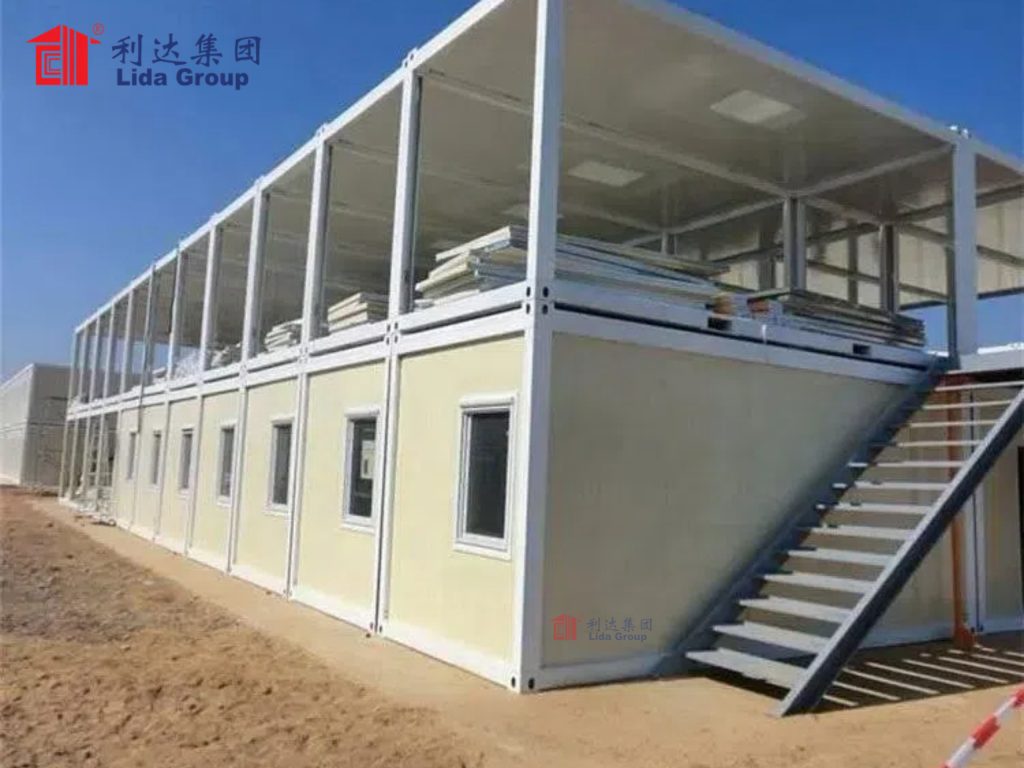
“Energy and water independence are critical components of our sustainable mobile container house designs, as they allow residents to reduce their reliance on centralized utility systems and mitigate the impacts of potential disruptions or shortages,” the lead sustainability and environmental expert explains. “By empowering city dwellers to take a more active role in managing their own resource consumption, we’re not only enhancing the environmental performance of these living spaces but also fostering a greater sense of community resilience and self-sufficiency.”
Beyond the integration of advanced sustainability features, mobile container houses also offer a range of inherent environmental benefits that stem from their compact, modular design and reduced construction footprint.
“Traditional brick-and-mortar construction methods typically require significant land area, extensive site preparation, and the use of heavy machinery, all of which can contribute to the degradation of urban ecosystems and the disruption of local communities,” the lead sustainability and environmental expert explains. “In contrast, mobile container houses can be deployed with a much lighter touch, minimizing the impact on the surrounding environment and enabling a more harmonious integration with the existing urban fabric.”
This reduced environmental footprint is further amplified by the exceptional durability and longevity of mobile container houses, which are engineered to withstand the rigors of urban living and can be easily maintained, repaired, and even relocated to extend their useful lifespan.
“By designing our mobile container houses to be highly durable and adaptable, we’re able to create living spaces that can be seamlessly integrated into the urban environment while also minimizing the need for frequent replacement or renovation,” the lead sustainability and environmental expert explains. “This not only reduces the overall material and resource consumption associated with urban housing but also contributes to the long-term sustainability and resilience of the built environment.”
As city leaders, developers, and policymakers continue to grapple with the complex challenges of sustainable urban development, the Lida Group’s mobile container houses are emerging as a promising solution that can help to address a wide range of environmental, social, and economic priorities.
“The mobile container house concept represents a fundamental shift in the way we approach urban housing, one that prioritizes sustainability, self-sufficiency, and the overall well-being of city dwellers,” the lead sustainability and environmental expert explains. “By seamlessly integrating these innovative living spaces into the urban fabric, we’re able to create a more sustainable, resilient, and equitable built environment that can serve as a model for the future of cities around the world.”
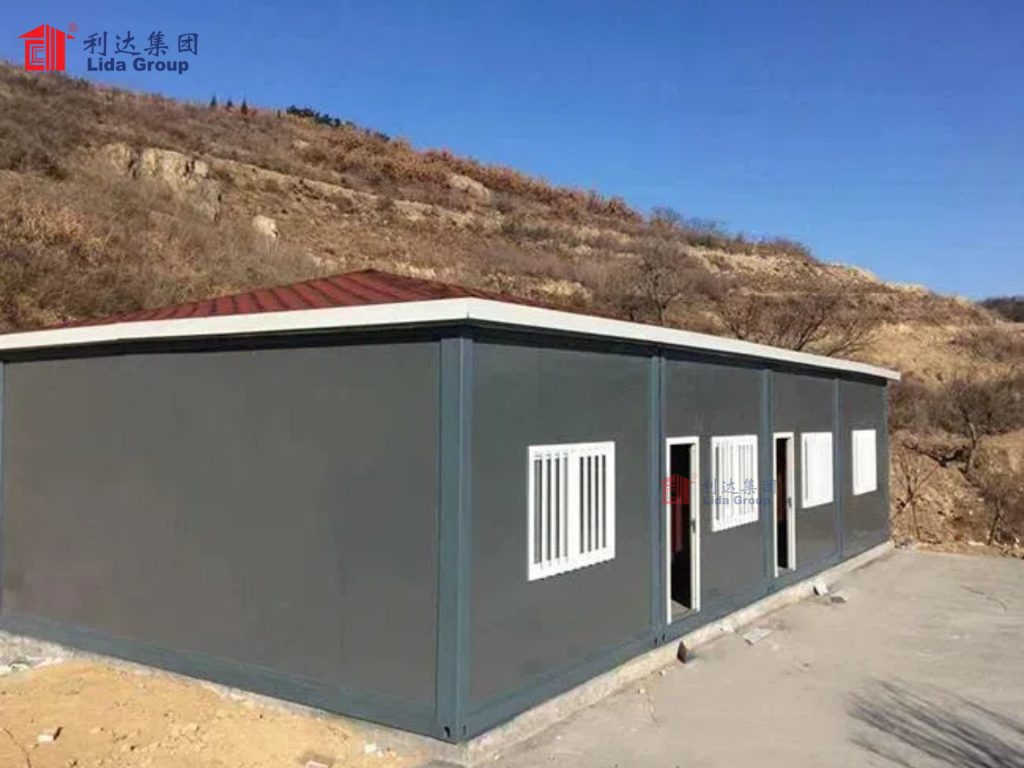
Enhancing the Quality of Life for Urban Residents
While the practical and environmental benefits of mobile container houses are undoubtedly compelling, the Lida Group’s team of experts argues that the true transformative potential of this innovative housing solution lies in its ability to enhance the overall quality of life for urban residents.
“At the heart of our mobile container house designs is a deep commitment to improving the lived experience of city dwellers, recognizing that the built environment has a profound impact on our physical, mental, and emotional well-being,” explains the lead occupant experience and human-centered design expert.
One of the key ways in which mobile container houses can enhance the quality of life for urban residents is through their exceptional levels of customization and personalization, which allow individuals and families to tailor their living spaces to their unique needs and preferences.
“Traditional urban housing options often fall short in meeting the diverse and evolving needs of city dwellers, with one-size-fits-all designs that fail to account for the unique lifestyle, cultural, and demographic factors that shape the preferences and priorities of different urban communities,” the lead occupant experience and human-centered design expert explains. “In contrast, the modular nature of mobile container houses enables a high degree of customization, empowering residents to actively shape their living environments in ways that support their individual well-being and overall quality of life.”
This customization extends beyond the physical layout and design of the container units, with the Lida Group’s team also incorporating a range of advanced smart technologies and integrated systems that allow residents to further optimize the performance, comfort, and overall management of their living spaces.
“Our mobile container houses are engineered to be highly intelligent, with integrated sensors, controls, and digital interfaces that enable residents to precisely monitor and adjust the environmental conditions, energy usage, and other key systems within their living spaces,” the lead occupant experience and human-centered design expert explains. “By providing city dwellers with these cutting-edge building management tools, we’re able to deliver a level of personalized control and convenience that can have a transformative impact on their daily lives and overall quality of life.”
Beyond the physical and technological attributes of the mobile container houses themselves, the Lida Group’s team has also placed a strong emphasis on incorporating design features and amenities that can positively impact the mental, emotional, and social well-being of urban residents.
“We recognize that the design of the built environment has a profound influence on our psychological and emotional state, and we’ve made it a priority to incorporate elements into our mobile container house designs that can foster a sense of comfort, connection, and personal fulfillment for our residents,” the lead occupant experience and human-centered design expert explains.
This includes the strategic use of natural lighting, thoughtful color and material palettes, and the integration of biophilic design features that can help to reduce stress, improve mood, and promote overall mental well-being. Additionally, the Lida Group’s mobile container houses are engineered to facilitate social interaction and community building, with shared amenity spaces, communal gardens, and other features that encourage residents to engage with their neighbors and forge meaningful connections.
“By creating living spaces that are not only highly functional and customizable but also aesthetically pleasing, psychologically restorative, and socially engaging, we’re able to deliver a level of occupant well-being that can have a tangible impact on the lives of city dwellers,” the lead occupant experience and human-centered design expert explains. “This holistic, human-centered approach to mobile container house design is a critical differentiator that sets our solutions apart in the urban housing market.”
Furthermore, the Lida Group’s mobile container houses are designed to provide a high degree of safety, security, and overall peace of mind for their residents – a particularly important consideration in the often crowded and unpredictable urban environment.
“The physical and psychological well-being of our residents is of the utmost importance, and we’ve engineered our mobile container houses to incorporate a range of advanced safety features and security systems that can help to protect city dwellers from potential threats or disruptions,” the lead occupant experience and human-centered design expert explains. “From robust structural components and integrated fire suppression systems to advanced access controls and emergency backup power, our container-based living spaces are designed to provide a level of safety and security that can be especially valuable for urban residents.”
By prioritizing the health, comfort, and overall well-being of their residents, the Lida Group’s mobile container houses are poised to redefine the standards of urban housing, delivering living spaces that not only meet the practical demands of city living but also contribute to the long-term success, productivity, and overall quality of life for urban dwellers.
“Our mobile container houses aren’t just about providing a roof over someone’s head – they’re about creating living environments that can truly transform the lives of city residents, empowering them to thrive and flourish in the face of the unique challenges and opportunities that urban settings present,” the lead occupant experience and human-centered design expert explains. “By seamlessly integrating cutting-edge design, technology, and sustainability features into our container-based living spaces, we’re able to deliver a level of occupant well-being and quality of life that is simply unmatched in the urban housing market.”
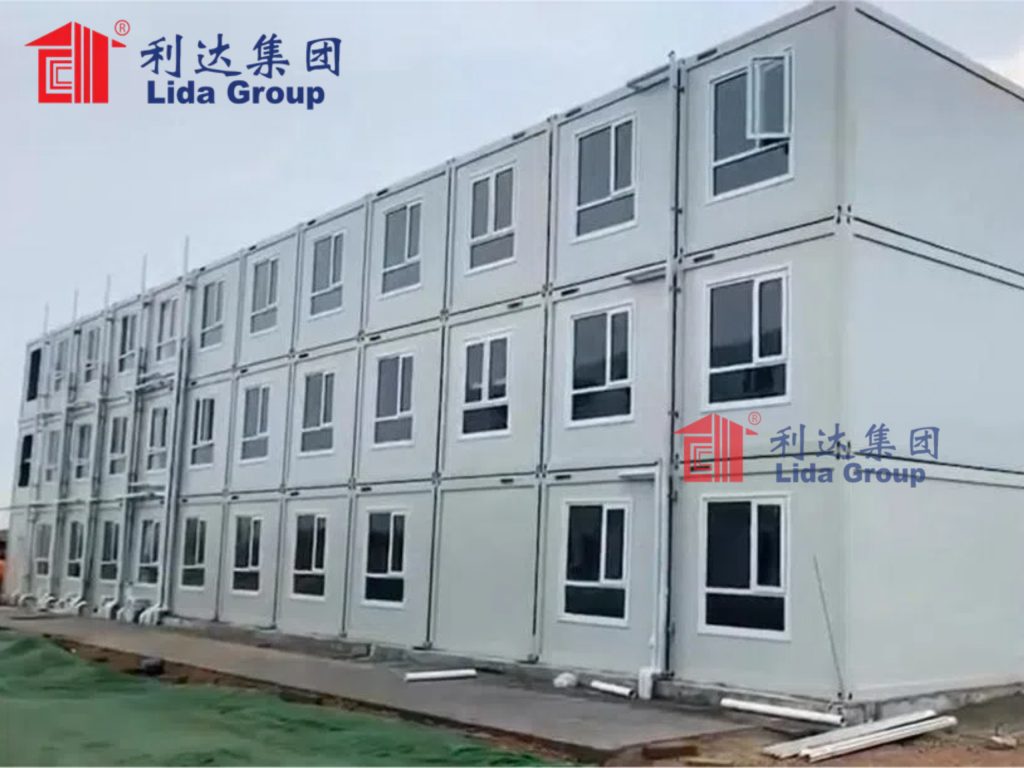
Leveraging the Power of Digital Integration and Automation
As the Lida Group continues to push the boundaries of what is possible with mobile container houses, the team has also placed a strong emphasis on the integration of advanced digital technologies and automation capabilities – a critical component of their efforts to deliver innovative, efficient, and responsive urban housing solutions.
“The urban housing industry has traditionally lagged behind other sectors when it comes to the adoption of digital technologies and automation, but we recognize the immense potential of these emerging tools to drive greater efficiency, precision, and responsiveness across the entire development and delivery lifecycle of our mobile container house projects,” explains the lead digital innovation and automation expert.
At the core of the Lida Group’s digital integration strategy is the team’s proprietary Building Information Modeling (BIM) platform, which serves as a centralized hub for the design, planning, and coordination of their modular container-based housing projects.
“Our BIM platform allows us to seamlessly integrate the various components of the construction process, from the initial design and engineering stages to the manufacturing, delivery, and on-site installation of our mobile container units,” the lead digital innovation and automation expert explains. “By bringing all of these elements together into a single, collaborative digital environment, we’re able to enhance communication, streamline workflows, and ensure the highest levels of quality and precision throughout the entire project lifecycle.”
The Lida Group’s BIM platform is further enhanced by the integration of advanced automation and robotics technologies, which are deployed throughout the team’s state-of-the-art manufacturing facilities to optimize the production and assembly of their mobile container units.
“Automation and robotics play a critical role in our container unit manufacturing process, allowing us to achieve unprecedented levels of speed, accuracy, and consistency in the production of our prefabricated building components,” the lead digital innovation and automation expert explains. “By leveraging these innovative technologies, we’re able to minimize human error, reduce material waste, and deliver a level of quality that simply can’t be matched by traditional, manual construction methods.”
The benefits of the Lida Group’s digital integration and automation capabilities extend beyond the manufacturing process, with the team also incorporating a range of advanced building management systems and smart technologies into the completed mobile container houses.
“Our mobile container houses are engineered to be highly intelligent, with integrated sensors, controls, and digital interfaces that allow our residents to optimize the performance, energy efficiency, and overall management of their living spaces,” the lead digital innovation and automation expert explains. “By providing them with these cutting-edge building management tools, we’re able to deliver even greater value and long-term operational benefits to our urban residents.”
The integration of these digital and automation technologies not only enhances the efficiency and quality of the Lida Group’s mobile container house solutions but also provides the team’s clients and residents with a comprehensive suite of data-driven insights and analytics that can inform their decision-making and strategic planning.
“Through the real-time monitoring and analysis of our container unit systems, we’re able to provide our clients and residents with valuable data and insights that can help them to optimize the performance, maintenance, and long-term sustainability of their mobile container-based living spaces,” the lead digital innovation and automation expert explains. “This data-driven approach to housing management is a key differentiator for our team, and it’s helping to drive greater transparency, accountability, and overall success for our urban residents.”
By seamlessly integrating cutting-edge digital technologies and automation capabilities into their mobile container house solutions, the Lida Group is not only enhancing the efficiency and precision of the construction and delivery process but also paving the way for a more techn-ologically advanced, responsive, and user-friendly future of urban housing.
“As the urban housing industry continues to evolve and adapt to the changing needs and priorities of city dwellers, the Lida Group is positioned at the forefront of this transformation, leveraging the power of digital integration and automation to deliver innovative, high-performance living spaces that can truly transform the way we think about and experience urban living,” the lead digital innovation and automation expert explains.
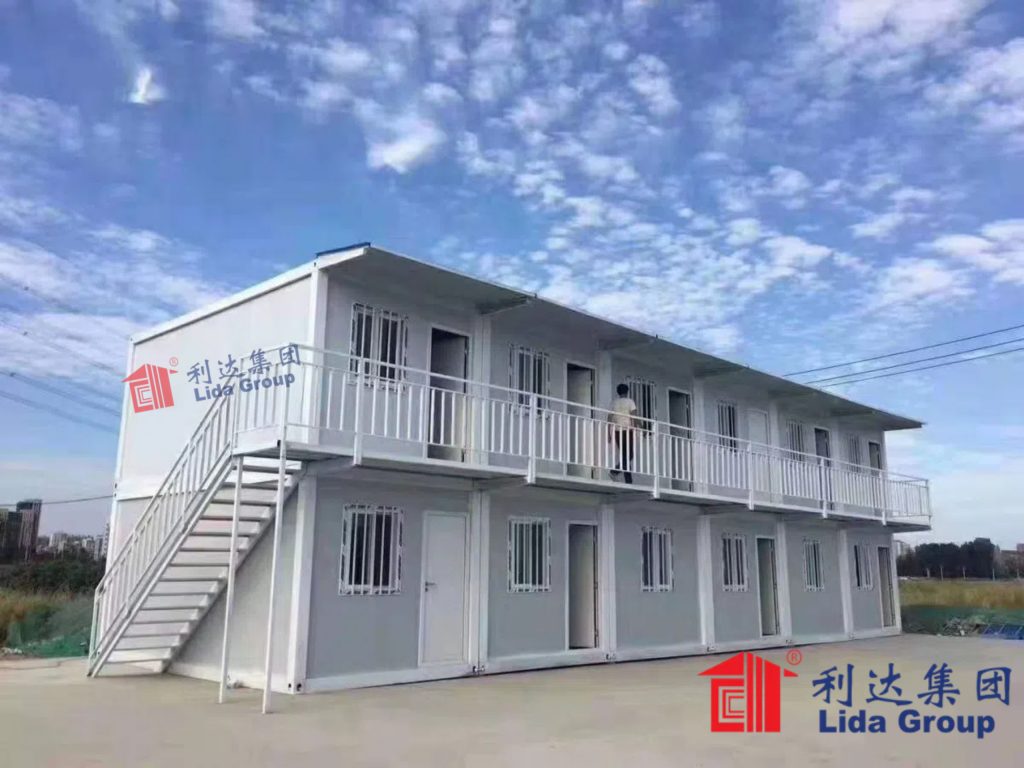
Overcoming Regulatory and Logistical Challenges
While the Lida Group’s mobile container houses offer a compelling and innovative solution to the pressing challenges of urban housing, the team has also had to navigate a complex web of regulatory and logistical hurdles in order to successfully deploy their container-based living spaces within city environments.
“One of the key challenges we’ve encountered in bringing our mobile container house solutions to urban markets is the need to navigate a diverse array of zoning, building, and safety regulations that can vary significantly from one jurisdiction to the next,” explains the lead regulatory and compliance expert.
“Traditional housing developments are typically subject to a well-established set of codes and standards, but the relatively new and rapidly evolving nature of the mobile container house concept has meant that we’ve had to work closely with local authorities and policymakers to ensure that our designs and construction practices fully comply with the unique regulatory requirements of each urban setting.”
To address these regulatory hurdles, the Lida Group has invested heavily in the development of robust compliance and certification programs, leveraging a team of experienced legal and technical experts to help guide their projects through the complex web of bureaucratic requirements.
“By proactively engaging with local regulators and building inspectors, we’ve been able to develop a deep understanding of the specific codes and standards that apply to our mobile container house solutions, allowing us to design and engineer our products to meet or exceed these stringent requirements,” the lead regulatory and compliance expert explains.
“This collaborative approach has not only helped to streamline the approval and permitting process for our urban housing projects but has also enabled us to build strong, productive relationships with the key stakeholders and decision-makers who play a critical role in shaping the future of the built environment in cities around the world.”
In addition to the regulatory challenges, the Lida Group has also had to grapple with a range of logistical obstacles that stem from the unique nature of their mobile container house solutions and the demands of urban development.
“Transporting and deploying large, prefabricated container units within the confines of a densely populated urban environment can present a range of practical and operational challenges, from navigating narrow streets and tight spaces to coordinating the complex logistics of on-site installation,” the lead regulatory and compliance expert explains.
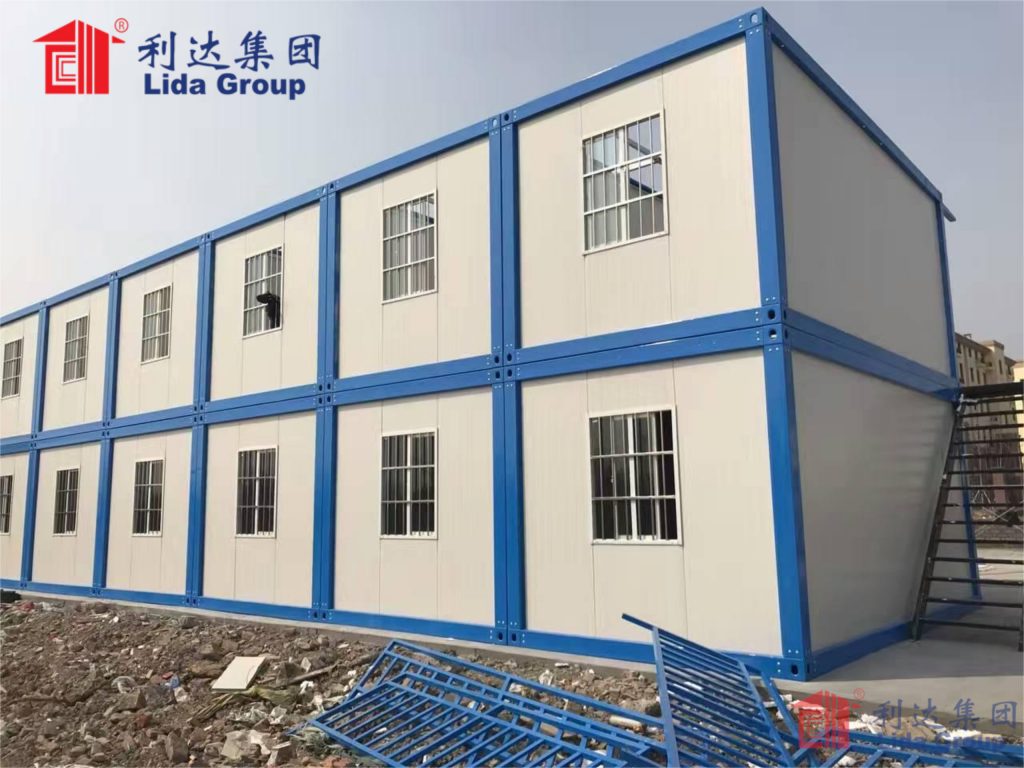
To address these logistical hurdles, the Lida Group has developed a comprehensive, end-to-end delivery and installation process that leverages specialized equipment, strategic transportation planning, and meticulously coordinated on-site workflows.
“By investing in purpose-built delivery vehicles, customized container handling equipment, and highly trained installation crews, we’re able to efficiently and safely transport our mobile container units to their designated urban sites and seamlessly integrate them into the existing built environment,” the lead regulatory and compliance expert explains.
“This level of logistical expertise and operational sophistication is critical to the successful deployment of our container-based housing solutions, as it allows us to minimize disruptions to local communities, ensure the timely and cost-effective delivery of our projects, and maintain the highest standards of quality and safety throughout the entire process.”
The Lida Group’s commitment to regulatory compliance and logistical excellence has not only facilitated the successful implementation of their mobile container house solutions in urban settings but has also helped to build trust and credibility with local authorities, developers, and community stakeholders.
“By proactively addressing the unique regulatory and logistical challenges that come with deploying innovative housing solutions in cities, we’ve been able to position the Lida Group as a trusted partner and thought leader in the urban development space,” the lead regulatory and compliance expert explains.
“This level of trust and credibility is essential to our long-term success, as it allows us to navigate the complex web of stakeholder interests and bureaucratic requirements, while also ensuring that our mobile container house solutions are fully integrated into the fabric of the communities they serve.”
As the Lida Group continues to expand the reach and impact of their innovative container-based housing solutions, the team remains committed to staying at the forefront of the evolving regulatory and logistical landscape, working closely with policymakers, industry partners, and local communities to shape the future of sustainable, responsive, and equitable urban development.
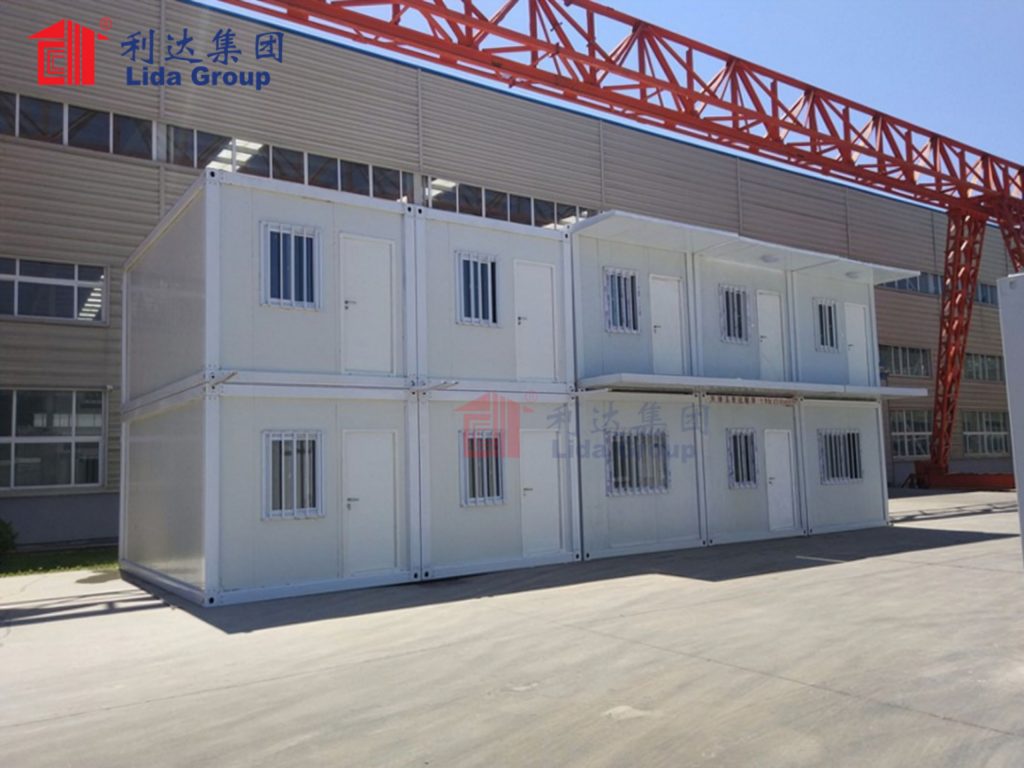
Conclusion
In the face of the complex and multifaceted challenges facing today’s urban centers, the Lida Group’s mobile container houses have emerged as a promising and transformative solution that has the potential to redefine the way we approach the built environment in cities around the world.
By leveraging the inherent strengths and versatility of repurposed shipping containers, the Lida Group has developed a innovative housing concept that delivers a compelling blend of practicality, sustainability, and occupant well-being – attributes that are increasingly critical to the success and vibrancy of modern urban communities.
Through their focus on exceptional mobility, customization, and integration of advanced digital technologies and automation capabilities, the Lida Group’s mobile container houses are not only enhancing the efficiency and responsiveness of urban housing development but also empowering city dwellers to take a more active and meaningful role in shaping their living environments.
At the same time, the Lida Group’s deep commitment to environmental sustainability and occupant-centric design has positioned their container-based living spaces as a vanguard of the urban housing industry, offering a compelling alternative to the conventional approaches that have often fallen short in addressing the unique challenges and opportunities of the 21st-century city.
As the world continues to urbanize at a rapid pace, the Lida Group’s mobile container houses stand poised to play a pivotal role in shaping the future of sustainable, equitable, and responsive urban development – a future in which the built environment not only meets the practical needs of city dwellers but also enhances their overall quality of life and well-being.

Related news
-
Detachable Temporary Homes Offer Flexible Housing Solutions in Changing Environments
2024-11-21 15:14:05
-
The Growing Popularity of Steel Structural Buildings: Lida Group’s Impact on Global Metal Warehouse Construction
2024-11-19 16:53:45
-
Researchers collaborate with Lida Group to develop portable living units combining modified cargo boxes with detachable composite building skins for remote outpost lodging.
2024-11-05 15:46:50
contact us
- Tel: +86-532-88966982
- Whatsapp: +86-13793209022
- E-mail: sales@lidajituan.com


